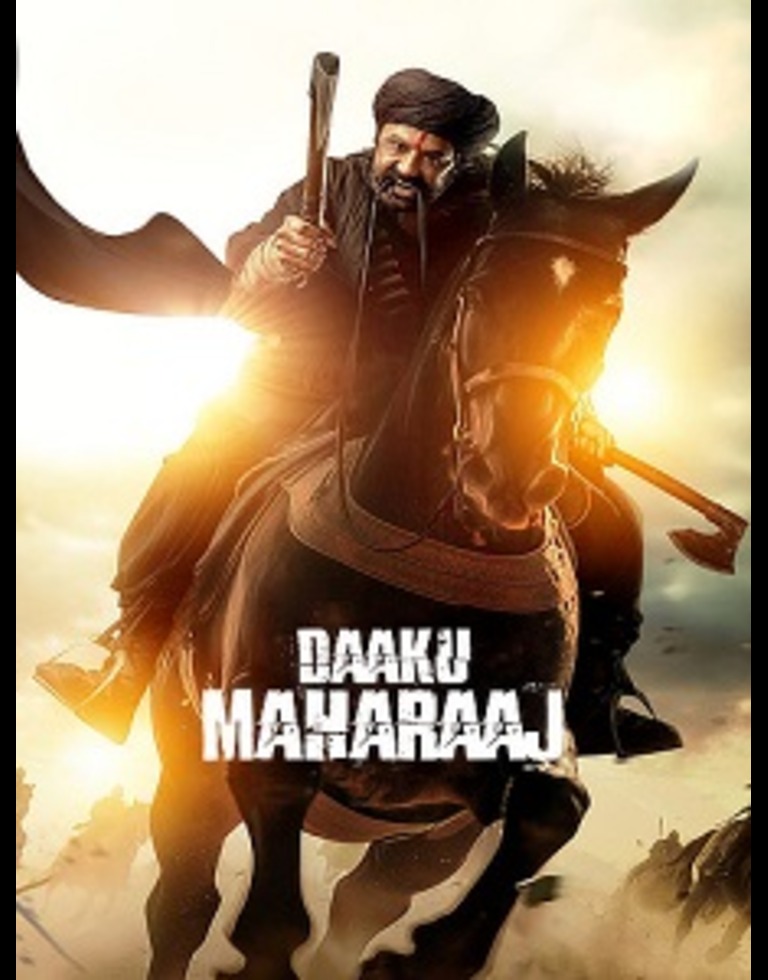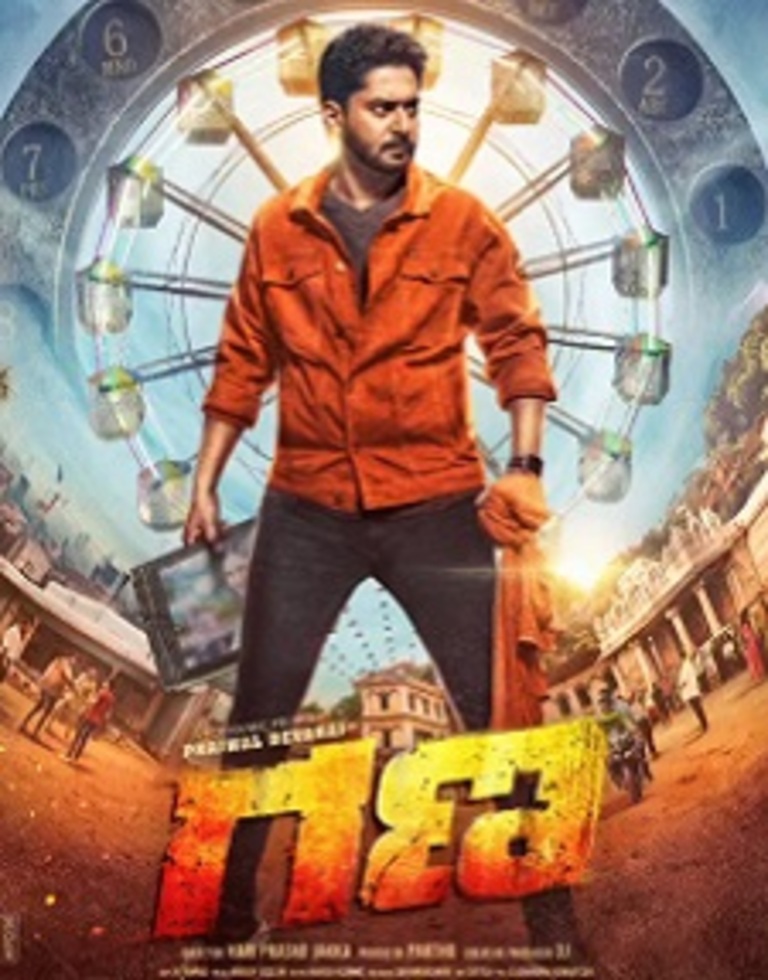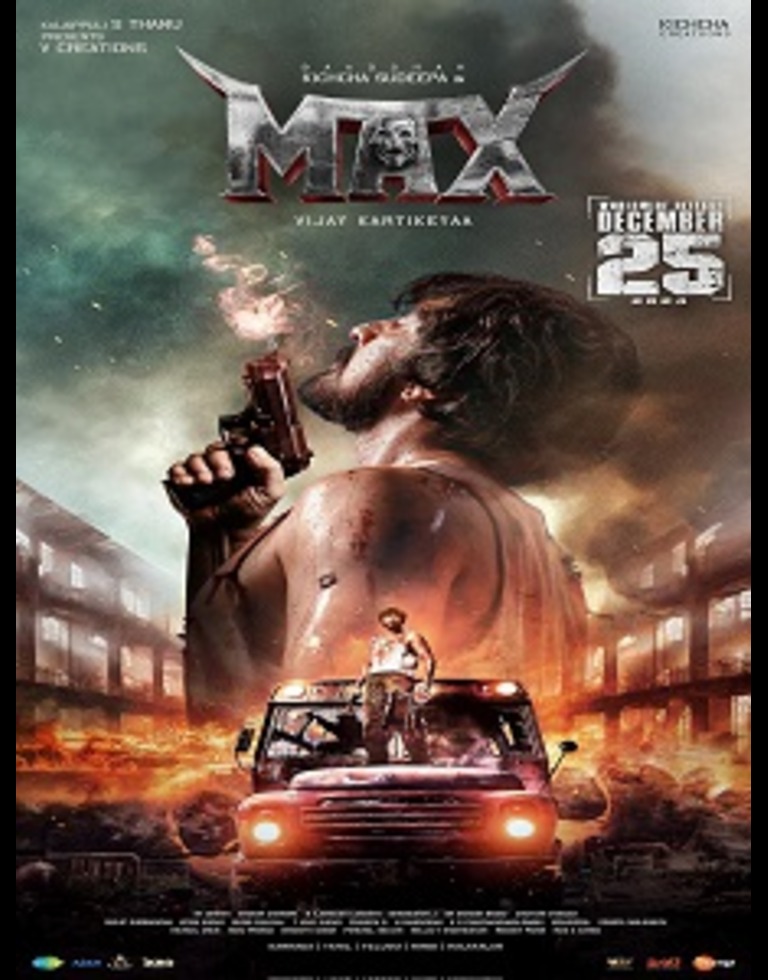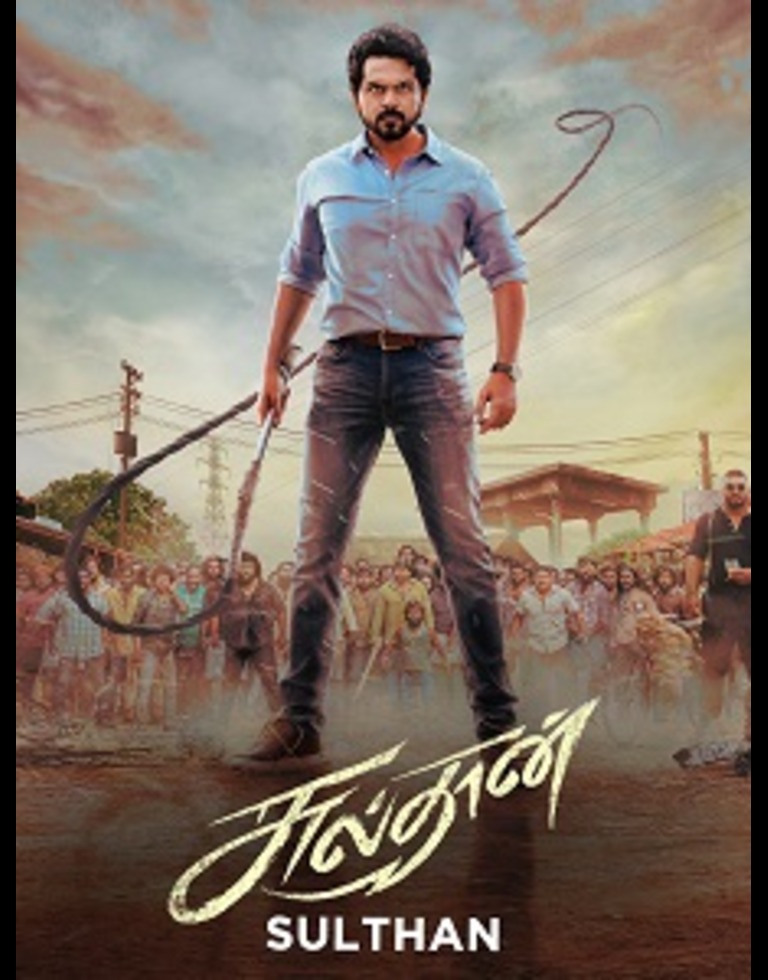

Daaku Maharaj marks a visceral journey into the rugged world of rural banditry, exploring themes of power, loyalty, and moral ambiguity. Directed by Amar Kishore Rajput, the film hinges on the transformation of a reluctant villager into the fearsome outlaw known as Maharaj.
🧩 Premise & Plot
Set in the dusty terrains of central India during the early 1990s, Daaku Maharaj begins with Raghav “Raghu” Verma, a farmer who leads a modest but content life with his wife and young daughter. When a corrupt local politician and his henchmen forcibly seize the community’s land, Raghu retaliates and ends up serving time for assault. Upon release, he finds his family struggling, and the villagers crushed under debt and fear.
Spurred by injustice and rage, Raghu forms a band of local misfits—farm laborers, petty thieves, and rejected youths—and becomes the formidable Maharaj, standing as both protector and rapacious outlaw. The film charts this transition and his rise: executing daring dacoities, exacting retribution on corrupt officials, and inspiring fear among both the powerful and powerless.
However, as Maharaj’s infamy grows, so does the moral cost. Friendships fracture, his family drifts, and law enforcement led by Inspector Kaviraj Singh intensifies its hunt. The final act pits Maharaj’s primal code against mounting betrayals, a broken rural order, and the impending violence of his own legend.
🎭 Performances
-
Vikram Jha, as Raghu/Maharaj, offers a compelling transformation—from a humble farmer to a hardened outlaw. His character arc is charged with emotional complexity: love interwoven with anger, resolve shadowed by regret. He brings quiet intensity in minor scenes and explosive conviction in action sequences.
-
Neena Goswami, as his wife Jyoti, anchors the emotional heart of the story. Her performance is understated and raw—capturing weariness, fear, loyalty, and heartbreak. The scenes where she confronts Maharaj about their crumbling life are quietly powerful.
-
Abhilash Mishra, playing fellow dacoit and friend Shekhar, portrays the uneasy bond between two outlaws—at once brotherly and brittle. He embodies the unpredictable loyalty that undercuts bandit camaraderie.
-
Arunoday Banerjee, as Inspector Singh, injects determination and moral rigidity. His pursuit of Maharaj is intense but tempered by occasional empathy, raising questions of justice versus retribution.
-
Supporting roles by local elders, political lackeys, and villagers add texture. A standout is the elder Sarpanch, whose evolving guilt and capitulation reflect how the community becomes complicit in violence.
🎬 Direction & Screenplay
Amar Kishore Rajput’s direction is immersive: the film feels like a dusty canvas of greed and resistance. He stages dacoities with raw grit—mud, blood, thunder of horses, shattered windows—evoking the violent poetry of outlaw cinema without glamor. Rajput’s pacing shows patience: intimate village dialogues segue into sudden brutality, underlining contrast between domestic calm and vigilante rage.
The screenplay—co‑written by the director and Sanjay Tandon—is layered. It poses moral questions: does fighting evil justify becoming evil? Are bandits protectors or predators—or both? Dialogues crackle with emotional weight: villagers turning on Maharaj, wives plotting escape, friends shaking with post‑raid guilt. Though rooted in genre tropes, the script taps into local lore and politics, grounding Maharaj’s rise in socio-economic frustration.
🔊 Music & Cinematic Style
The soundscape combines rustic folk tunes, haunting harmonium chords, and low percussion during tense moments. This gives emotional texture to family scenes and sharp urgency during action. A recurring lullaby motif—sung by Jyoti—anchors the film emotionally and resurfaces during key flashback moments.
Cinematography by Ravi Dey paints contrasts vividly: sun-bleached fields, dim huts, rivers of mud, and dimly lit hideouts. Wide takes emphasize rural vastness and smallness of individuals, while tight interior frames capture the claustrophobia of suspicion and moral conflict.
⚖️ Strengths & Weaknesses
Strengths:
-
Authentic world‑building: village life and bandit life blend convincingly.
-
Strong central performance: Vikram Jha carries the film with layered intensity.
-
Moral complexity: the outlaw hero isn’t romanticized—he is flawed, driven, lost.
-
Action staging: visceral, economical, emotionally effective.
Weaknesses:
-
Length: At 155 minutes, the film can feel protracted—particularly in mid-film flashbacks explaining juvenile motivations.
-
Underused roles: Some supporting characters (a village teacher, younger bandits) are introduced but then dropped narratively.
-
Violence consistency: A couple of scenes lean towards graphic stylization, momentarily pulling out of the grounded tone.
🎯 Final Verdict
Daaku Maharaj is a compelling rural-crime saga that balances visceral action with emotional depth. It raises the age-old question: are outlaws true heroes or tragic products of a broken system? Anchored by strong performances—especially its lead—and evocative direction, the film holds attention even at over two‑and‑a‑half hours.
If you appreciate morally complex crime dramas rooted in social commentary, Daaku Maharaj stands tall—a weathered, resonant tale of power, loss, and redemption.



